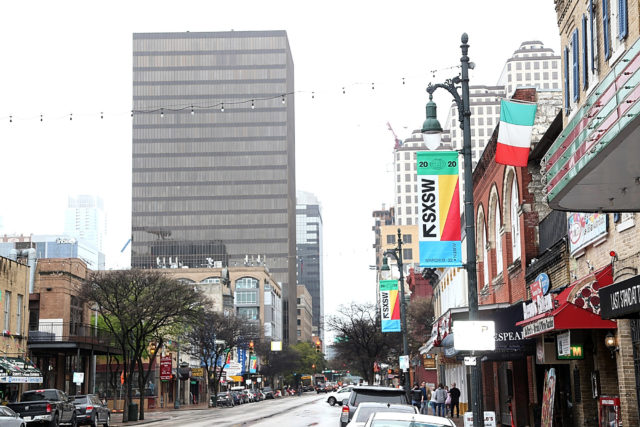SXSW was one of the first major festivals to cancel due to coronavirus, an outcome that appears to have put the Austin institution in financial jeopardy. The massive music, film, and technology event laid off about a third of its 175 year-round employees in the wake of the cancellation, which occurred just days before the first phase of SXSW was set to descend upon Austin. "[We are] planning to carry on and do another event in 2021," SXSW co-founder and CEO Roland Swenson told the Wall Street Journal at the time. "How we’re going to do that I’m not entirely sure."
Meanwhile, instead of refunds, ticket-holders for SXSW 2020 were offered to defer their registration to 2021, 2022, or 2023 and to purchase registration for another of those years at 50% off. Now SXSW is facing a class action lawsuit over that refund policy. as Billboard reports, Plaintiffs Maria Bromley and Pauta Kleber, who claim to have spent over $1,000 each on attending SXSW 2020, filed the suit in US District Court for the Western District of Texas Austin Division on April 24.
SXSW's initial email to ticket-holders read, "You don’t need to take immediate action regarding your 2020 registration. It will remain in our system for future opportunities that will be available to you." However, according to Bromley and Kleber's lawsuit, SXSW informed both plaintiffs that the offer to transfer their registration to a future year expires on April 30, 2020 and that SXSW "cannot be certain that future festivals will occur." Their complaint reads, "SXSW has, in effect, shifted the burden of the COVID-19 pandemic onto festivalgoers ... individuals who in these desperate times may sorely need the money they paid to SXSW for a festival that never occurred."
A rep for SXSW offered this statement to Billboard: "When Mayor Steve Adler issued an order on March 6, 2020, prohibiting SXSW from holding the 2020 event due to the COVID-19 pandemic, we understood and agreed with his tough call. The pandemic and the cancellation have caused a tremendous loss to our business, our staff, the City, and its citizens. We are still picking up the pieces after spending a year to program what would have been a remarkable event that required significant time, energy, and resources to produce."






